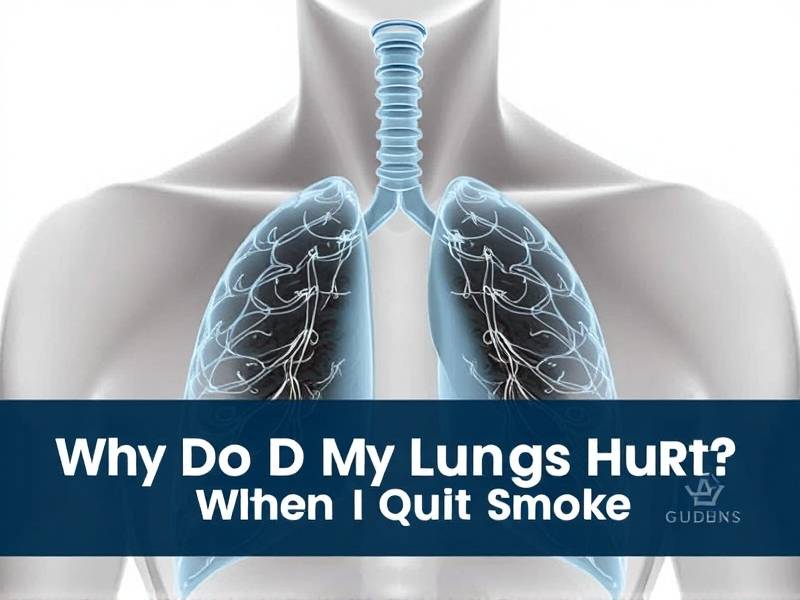Why Do My Lungs Hurt When I Quit Smoking?
The Surprising Pain in Your Lungs: Understanding the Quitting Smoking Journey
Introduction: Quitting smoking is a challenging journey, and it's not uncommon to experience various physical symptoms along the way. One of the most surprising and concerning symptoms many smokers encounter is lung pain. In this article, we'll delve into why your lungs might hurt when you quit smoking and provide insights into how to navigate this phase of your journey.
-
Detoxification Process: When you quit smoking, your body goes through a detoxification process to rid itself of nicotine and other harmful chemicals. This process can lead to inflammation and discomfort in various parts of the body, including the lungs. It's important to understand that this pain is temporary and a sign that your body is healing.

-
Nicotine Withdrawal: Nicotine withdrawal is a common experience for smokers trying to quit. Nicotine is an addictive substance that affects the nervous system, and when you stop consuming it, your body reacts by increasing stress hormones like adrenaline. This increase in stress can cause muscle tension, including in the chest area, leading to pain or discomfort.
-
Coughing and Bronchial Irritation: As your body tries to clear out tar and mucus accumulated from years of smoking, you may experience increased coughing and bronchial irritation. This coughing can be quite forceful at times, causing pain or soreness in the chest area.
-
Inflammation and Healing: Quitting smoking triggers an inflammatory response in the lungs as they begin to heal from years of exposure to harmful substances. This inflammation can cause pain or pressure sensations in the chest area.
-
Anxiety and Stress: Emotional factors also play a role in experiencing lung pain when quitting smoking. Anxiety, stress, and fear of withdrawal symptoms can exacerbate physical discomforts like chest pain.
How to Manage Lung Pain During Quitting Smoking:
-
Stay Hydrated: Drinking plenty of water helps flush out toxins from your body more efficiently during the detoxification process.
-
Practice Breathing Exercises: Breathing exercises can help relax your muscles, reduce anxiety, and improve lung function during this transition period.
-
Seek Support: Joining a support group or seeking professional help from a healthcare provider can provide emotional support and guidance on managing lung pain during quitting smoking.
-
Stay Active: Regular physical activity promotes lung health by improving circulation and reducing stress levels.
-
Consult Your Healthcare Provider: If you experience severe or persistent lung pain while quitting smoking, it's essential to consult with a healthcare provider who can assess your condition further.

Conclusion: While experiencing lung pain when quitting smoking might be unsettling initially, it's important to remember that it's a temporary phase on your journey towards better health. By understanding the reasons behind this discomfort and implementing effective strategies for management, you can navigate through this challenging period more comfortably and successfully break free from tobacco addiction for good!
